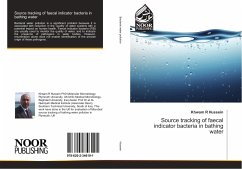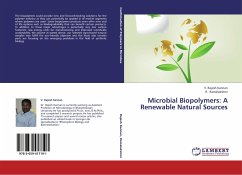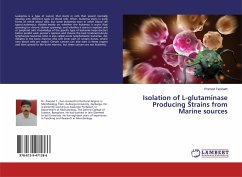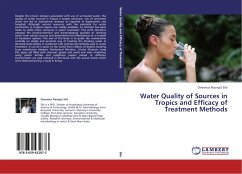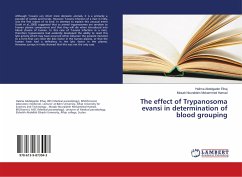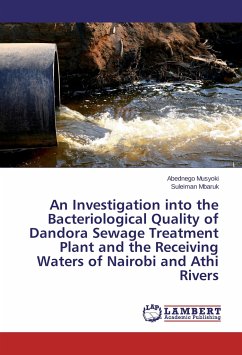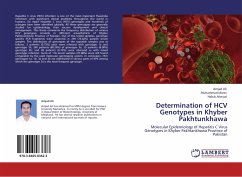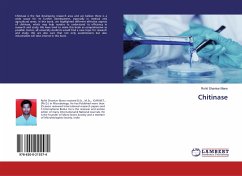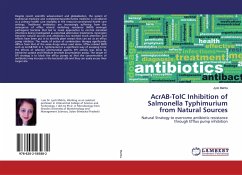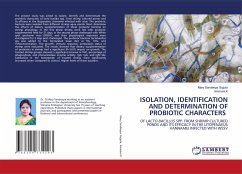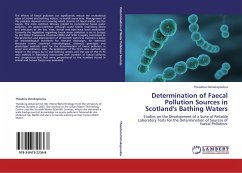
Determination of Faecal Pollution Sources in Scotland's Bathing Waters
Studies on the Development of a Suite of Reliable Laboratory Tests for the Determination of Sources of Faecal Pollution.
Versandkostenfrei!
Versandfertig in 6-10 Tagen
45,99 €
inkl. MwSt.

PAYBACK Punkte
23 °P sammeln!
The effects of faecal pollution can significantly reduce the recreational value of inland and bathing waters, as health issues arise. Management of this problem depends on knowing which sources of faecal matter are the causes. The most common illnesses related to recreational faecal water pollution, are gastro-intestinal, although acute febrile respiratory illness and infections of the ear, nose, throat and eyes have been monitored. Currently the legislation regarding faecal water pollution is set in Europe by the Water Framework Directive (2006) and SEPA is legally committed to the protection...
The effects of faecal pollution can significantly reduce the recreational value of inland and bathing waters, as health issues arise. Management of this problem depends on knowing which sources of faecal matter are the causes. The most common illnesses related to recreational faecal water pollution, are gastro-intestinal, although acute febrile respiratory illness and infections of the ear, nose, throat and eyes have been monitored. Currently the legislation regarding faecal water pollution is set in Europe by the Water Framework Directive (2006) and SEPA is legally committed to the protection and improvement of all Scottish waters to maintain a policy on microbiological standards for relevant discharges. An extensive literature review examined microbiological, chemical, genotypic and phenotypic methods used for the determination of faecal pollution in water and sediments. Also, the application of the FC:FS ratio method was tested in the Angus burns and bathing waters and the useof the FC:FS ratio method in laboratory microcosms with numbers of faecal coliforms and streptococci that that were proportional to the numbers found in animal and human faeces was evaluated.



